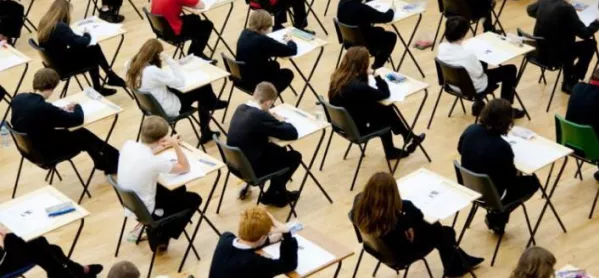GCSE and A-level appeals up 42%
There was also an increase of 54% in the number of appeals upheld
Share
GCSE and A-level appeals up 42%
https://www.tes.com/magazine/archive/gcse-and-level-appeals-42

The number of appeals relating to GCSEs, AS and A levels increased 42 per cent in 2018, according to new figures from Ofqual.
And the number of appeals upheld has increased by 54 per cent.
Appeals can be submitted if a school or college is unsatisfied with the result of a review or marking, review of moderation, a malpractice decision, or the outcome of a reasonable adjustment or special consideration review.
Read: IGCSEs undermine public trust in exams
Exclusive: Brexit ‘nightmare’ could see GCSEs and A-levels postponed
Read: Only three in 10 heads think GCSEs prepare pupils for work
Today’s Ofqual figures show that a total of 847 appeals for GCSEs, AS and A level were submitted for the 2018 summer exam series - up from 597 in 2017.
And the number of appeals which were upheld rose from 260 in 2017 to 400 in 2018.
The number of GCSE appeals increased from 272 to 479. Ofqual said this was mostly due to increases in appeals related to malpractice and review of marking compared to 2017. The proportion of appeals upheld increased from 36 per cent in 2017 to 54 per cent in 2018, and the number of appeals leading to a grade change also increased.
For AS and A levels, the number of appeals increased from 325 to 368, but the number of appeals upheld, and of appeals leading to a grade change decreased.
In 2017 new grounds for appeal were introduced for AS and A levels, allowing schools to appeal if they still believe there to be a marking error following a review of marking or review of moderation or that a further error was made at the review stage.
In 2018 this new ground was extended for GCS English language, English literature and mathematics, and Ofqual said that this was likely to have “resulted in an increase in the number of appeals… compared to previous years”.
The number of qualification grades challenged for AS and A level in 2018 was 514, a decrease of 41 per cent compared to 2017, despite the number of appeals increasing. Ofqual said this was because in 2018 on average, appeals by schools “tended to include fewer candidates than they have done previously, possibly due to the reduction in the number of moderated components as a result of reform”.
For GCSE, the number of grades challenged in 2018 was 889, a decrease of 63 per cent since 2017. Ofqual said this was due to centres submitting fewer candidates, on average, in each appeal, possibly because increased access to previously unavailable information such as scripts and script marks “allows any appeal submission to be more targeted”.
The reduction in the number of moderated components as a result of reform was also likely to have played a part, the regulator said.
Despite the decline in the number of grades challenged, the number of GCSE grades changed due to an appeal increased from 92 in 2017 to 144 in 2018.
You've reached your limit of free articles this month. Subscribe for £1 per month for three months and get: